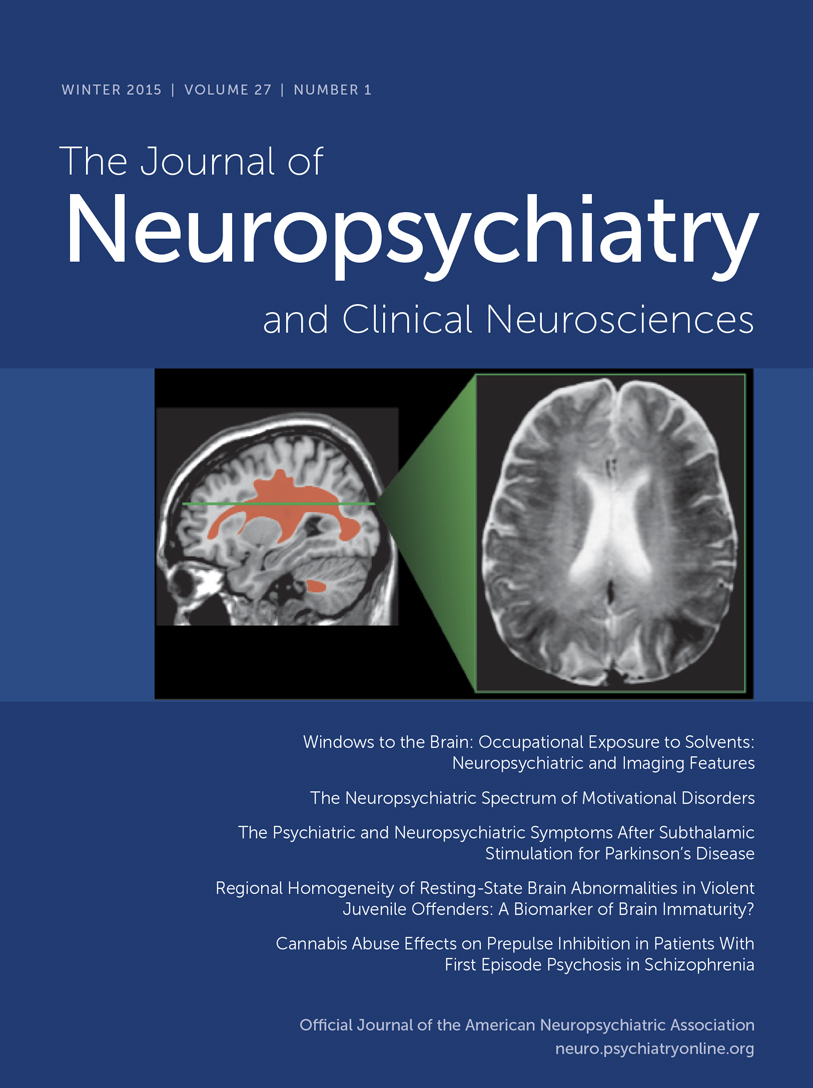Case Report of Clozapine-Induced Neutropenia and Rechallenge
To the Editor: The authors report a patient with schizophrenia, who developed neutropenia 8 years after starting clozapine. When rechallenged with clozapine, she remained in remission, without any adverse effects.
Case Report
A 24-year-old woman with paranoid schizophrenia (DSM-IV-TR), with florid, unremitting symptomatology, was treated with several antipsychotic drugs for 2 years. She was treatment resistant. There were no signs of any affective features. When first seen by us at this point, and after haloperidol in a high dose failed, she was put on clozapine, with regular monitoring of her blood counts, and the dose was gradually increased to 400 mg/day. At this dose, over a 3-month period, she became asymptomatic. Six months later when she got married, she was on a maintenance dose of 150 mg/day. She took good care of the family.
For the next 8 years, she got her white blood cell count and absolute neutrophil count regularly, at monthly intervals. The reports were normal. Thereafter, she missed her follow-up visits for 1.5 years, during which no investigation was done, although she continued taking clozapine 150 mg/day and remained asymptomatic. She was brought to us because she complained of tiredness, fatigue, and light headedness. Complete blood counts showed that her total WBC count was 2500/cubic mm and her absolute neutrophil count was 1450/cubic mm. The clozapine was immediately stopped.
Within 2 days, she became restless and had severe sleep disturbance. In view of her treatment history and the possible difficulties in the event of a relapse, rechallenge with clozapine was considered. Her counts were within the normal range on the fourth day after stopping clozapine. Clozapine was restarted at a dose of 12.5 mg/day. It was increased to 50 mg/day over a period of 2 weeks. Her WBC count and absolute neutrophil count were closely monitored, initially every day for 1 week, then on alternate days for 1 week, and then twice a week continuously thereafter. She is maintained on clozapine 100 mg/day with regular monitoring of counts twice a week, which remain normal. She is asymptomatic, and her visits have been regular for the last 6 months.
Discussion
This patient had a history of very severe treatment-resistant schizophrenia. Trying another antipsychotic, given her treatment history, would have put her at a high risk of a full-blown relapse. Rechallenge with clozapine is not recommended in severe neutropenia/agranulocytosis.1 This patient had moderate neutropenia (between 1000 and 1500/cubic mm). Recurrence of neutropenia on rechallenge is very high.2 This patient was started on clozapine 12.5 mg, and the dose gradually increased, after the first week, because the risk of the absolute neutrophil count falling again is greatest around the fifth day. A fall in absolute neutrophil count on rechallenge is usually more severe than it is in the first episode of neutropenia.3 This case illustrates that rechallenge with clozapine, under close monitoring, can be a reasonable option.
1 : When can patients with potentially life-threatening adverse effects be rechallenged with clozapine? A systematic review of the published literature. Schizophr Res 2012; 134:180–186Crossref, Medline, Google Scholar
2 : Restarting clozapine after neutropenia: evaluating the possibilities and practicalities. CNS Drugs 2007; 21:25–35Crossref, Medline, Google Scholar
3 : Rechallenge with clozapine following leucopenia or neutropenia during previous therapy. Br J Psychiatry 2006; 188:255–263Crossref, Medline, Google Scholar



